Quarantine, social distancing and self isolation seems to be the need of the hour amidst all the chaos surrounding COVID-19 across the world. But how can you make the most of social distancing? Mindfulness.
COVID-19 & self isolation
How are you dealing with the pressures of self isolation? Are you constantly keeping your eyes on the news? Are you scrolling through social media a bit more than usual? Are you wondering if you should buy some more toilet paper? But this is not the time to panic.
Yes, it is very easy now to lose your composure in the confusion and pandemonium that surrounds us all. But can you imagine the effect it will have on your mental health?
As we are being asked to self isolate ourselves to prevent the spread of the coronavirus, it is important that we focus on self-care and mindful living now more than ever for our mental and emotional health.
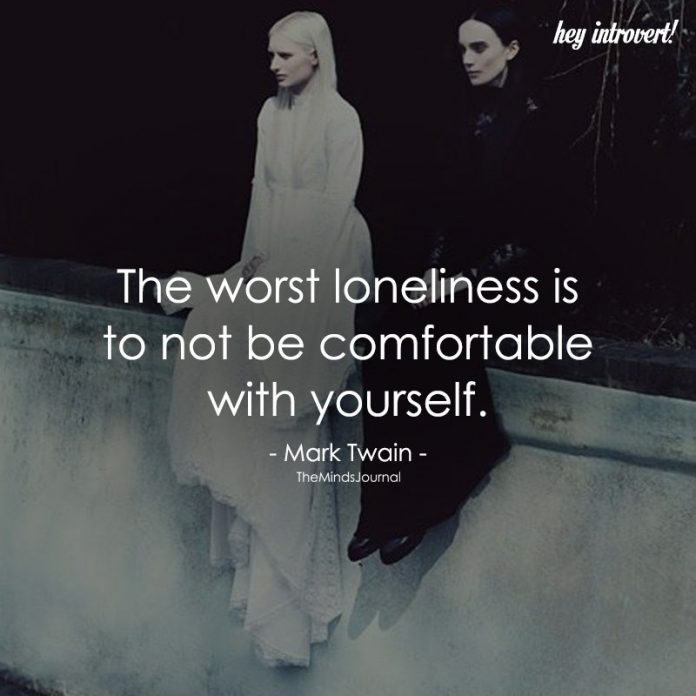
Dr. Russell G. Buhr, a pulmonologist at U.C.L.A. Health says, “Trying to preserve some sense of normalcy is really important for people’s well-being. And good mental health promotes good physical health.” As we go into an extended mode of quarantine and minimize our contact with others, we are bound to feel some psychological and emotional stress caused by this sudden and forced loneliness.
Is COVID-19 making you panicky? Read The Science Behind Mass Panic and How To Stay Sane During Coronavirus Outbreak
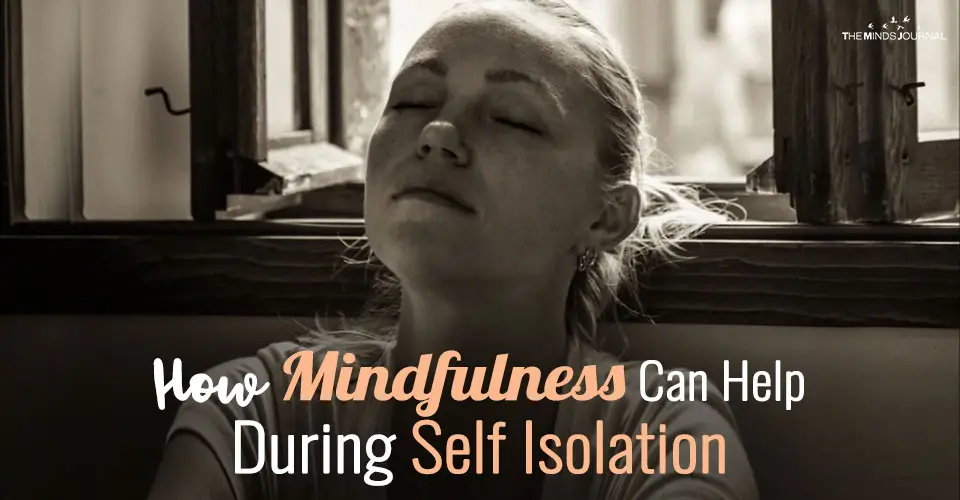
How loneliness affects our mental health
According to one 2018 study, “Loneliness is usually considered to be the psychological manifestation of social isolation.” The research found that “Social isolation, which is considered to be an objective and quantifiable reflection of the reduction in the size of the social network and the lack of social contact, is associated with an increased risk of developing cardiovascular disease, infectious diseases, cognitive impairment and mortality.”
Another 2019 study revealed that stress is closely linked with self isolation and loneliness. Moreover, a 2014 study discovered that isolation and loneliness can result in a number of “psychiatric disorders like depression, alcohol abuse, child abuse, sleep problems, personality disorders and Alzheimer’s disease.”
The study adds “It also leads to various physical disorders like diabetes, autoimmune disorders like rheumatoid arthritis, lupus and cardiovascular diseases like coronary heart disease, hypertension (HTN), obesity, physiological aging, cancer, poor hearing and poor health. Left untended, loneliness can have serious consequences for mental and physical health of people.”
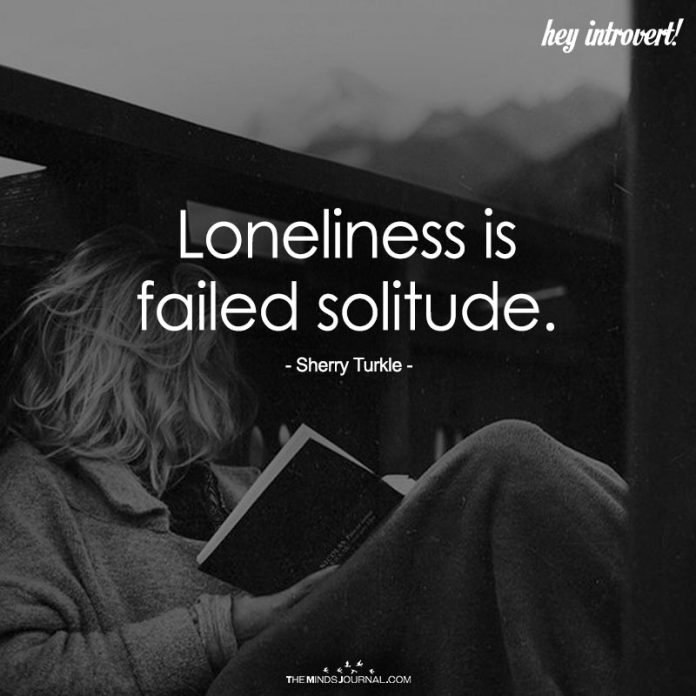
Given the current scenario across the world right now it is very crucial that we focus on our mental and emotional health right now. It is imperative that we do everything possible to reduce the psychological effects of social distancing through personal development and mindful living.
Self isolation making you feel lonely? Read 10 Pertinent Facts About Loneliness And How It Effects The Mind And Body
Can mindfulness help us with self isolation?
Many experts believe that mindful living just may be the answer we are looking for right now to cope with the mental impact of the quarantine. In a Psychology Today article, Jordan Fiorillo Scotti, Ph.D., a licensed psychologist and Buddhist practitioner, writes “With the arrival of COVID-19, we are all experiencing some degree of disruption to daily life.” But she believes that we can use this “opportunity to find meaning in this new and surreal experience” even though our situations may be different.
Jordan believes that although we are being compelled to adapt to a new & different lifestyle and routine, self isolation due to COVID-19 “also offers the gift of time for reflection.” She writes “Use this experience to clarify what’s important in your life and to ready yourself to move on after COVID-19 stronger, calmer, and clearer than before. Start by pausing to really absorb the magnitude of this moment.”
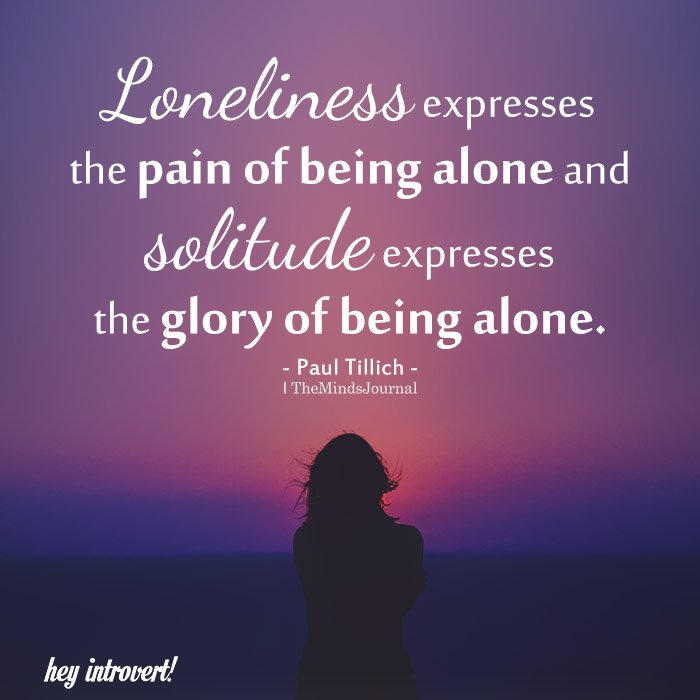
In another Psychology Today post, Zoe Weil, M.A., M.T.S., author, speaker and president of the Institute for Humane Education, writes “Panic and dread can accompany uncertainty, and these are among the most uncertain times that many people have ever experienced in their lifetimes.” However, she believes that mindfulness and being aware of our thoughts, emotions and physical health can help us “to be less reactive and more responsive in the face of such uncertain and frightening times.”
Although mindful living practices might not prevent the spread of the new virus or solve our financial or other problems, they can certainly help us in many different ways.
Is mindfulness helpful? Read How Mindfulness Can Improve Your Overall Mental Health
How to use mindfulness during self isolation
Psychologist Jordan Fiorillo Scotti, Ph.D. writes that COVID-19 and self isolation is a “powerful reminder that there are forces greater than ourselves that don’t bend to our wills. It is humbling and humanizing, and can even be a meaningful turning point in our lives if we give ourselves time to absorb the lessons of this experience.”
The key to surviving social distancing and the adverse psychological effects of quarantine is through mindful living practices. Here are a few ways mindfulness can help you not only to pass your time but also use this time for personal growth.
1. Breathe and pause
Breathing is one of the best and most effective ways to practice mindfulness. Mindful breathing is simply being aware of your breath and bringing your awareness to your breath in the present moment. Deep breathing and other breathing exercises also allow us to slow our mind, pause and reflect on our thoughts and emotions. The better we are able to reflect, the better we will be able to identify with our fears. In fact, a scientific analysis conducted in 2017 found that deep breathing is “capable to induce an effective improvement in mood and stress.”

Mindful breathing will allow you to realize when you are panicking and get control over your thoughts by simply being aware of them. In a The New York Times post, Dani Johnson, physical therapist at the Mayo Clinic Healthy Living Program, says “It’s really important that we take a few moments and pause and really just sort of relax ourselves and our nervous system.” She recommends the diaphragmatic breathing technique as it can be very helpful during self isolation.
Another 2017 study on diaphragmatic breathing discovered that the technique can “improve cognitive performance and reduce negative subjective and physiological consequences of stress in healthy adults.”
2. Be aware of your fears & emotions
Becoming aware of what you are afraid of will help you deal with the fear of self isolation and prevent you from panic buying or making unnecessary decisions. It will also help you cope with whatever issue is causing anxiety and stress.
Zoe Weil writes “Noticing that your heart is racing with fear can give you enough distance from that fear to take some deep breaths and find an outlet that soothes, calms, and interrupts the anxiety.” Although bringing awareness to your fears might be difficult for most of us, Zoe adds, “but thinking like a solutionary is proactive, leading to better mental and situational outcomes.”
A systematic review conducted in 2018 found that Mindfulness-Based Stress Reduction (MBSR) can improve psychological functioning. The study noted “Based on our analysis, the strongest outcomes were reduced levels of emotional exhaustion (a dimension of burnout), stress, psychological distress, depression, anxiety, and occupational stress.”
Feeling stressed due to coronavirus? Read Coronavirus Anxiety: 5 Things You Can Do To Beat It
3. Be compassionate
As the level of confusion and chaos rises during this global pandemic, it becomes increasingly crucial that we have empathy and compassion. Being empathetic and compassionate will help you get some new perspective on the circumstances and help us all get through these difficult times together.
Psychologist Jordan Fiorillo Scotti Ph.D. writes “Take care of others… Check-in (via phone/email) on elderly neighbors or relatives to see if they need help. Pick up a bag of groceries or medications for someone at higher risk than you.”
Author Zoe Weil M.A., M.T.S, adds “Shifting your attention from “me to we” will help you immeasurably. If you are healthy and relatively secure, focus on what you can do for others to relieve not just their imagined dread, but their very real hardships.”
However, self compassion, self love and self care is also of prime importance right now.
4. Practice gratitude
Counting your blessing and being grateful during such testing times can have a significant impact on your mental health and empower you to get through the perils of self isolation. Several studies have discovered that individuals who practice gratitude regularly tend to be less depressed and happier in life. Gratitude helps us to break free from negative and toxic emotions and focus on what we still have in this present moment.
According to a 2019 study, gratitude has some positive effects on our well-being and mental health. The paper states “The gratitude intervention managed to increase positive affect, subjective happiness and life satisfaction, and reduce negative affect and depression symptoms.”
Jordan Fiorillo Scotti explains “The prospect of serious illness reminds us to be thankful for our health and other blessings. Seeing others struggle with illness can inspire us to better care for our bodies and appreciate more – and judge less – our physical capacities.” She believes that we should pause to appreciate the different blessings this pandemic has brought, like the opportunity to spend more time with our families during self isolation.
Transform self isolation into solitude
There is no doubt that this coronavirus pandemic is causing us a lot of anxiety and stress. Apart from the health risks and drastic change to our lifestyle and daily routines, social distancing and self isolation is affecting our mental & emotional health as well.
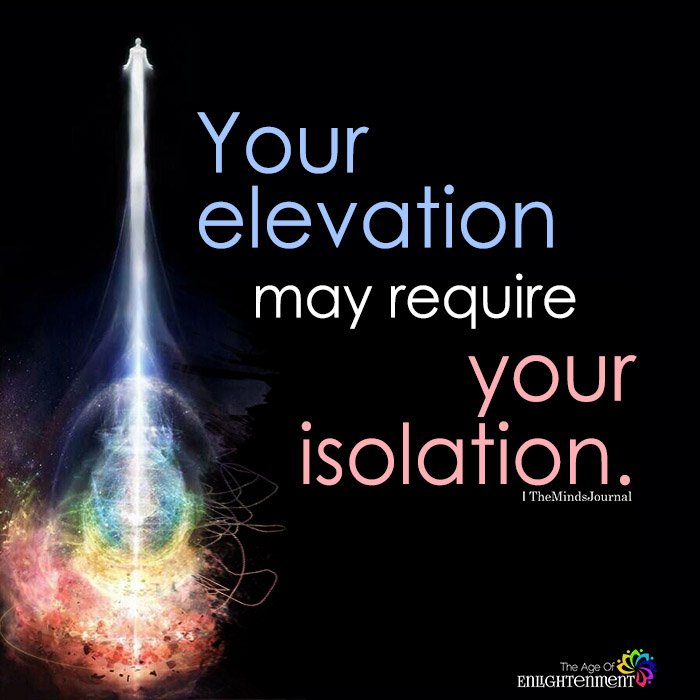
However, practicing mindfulness can help us overcome the fear of isolation and experience solitude during this period of quarantine. It can help us reflect and use this time to improve our mind, body and soul.
So make sure to stay indoors, stay safe, stay healthy and be mindful.
Want more? Read How Mindfulness Meditation For Panic Disorder Can Help You
Here is an interesting video that you may find helpful:
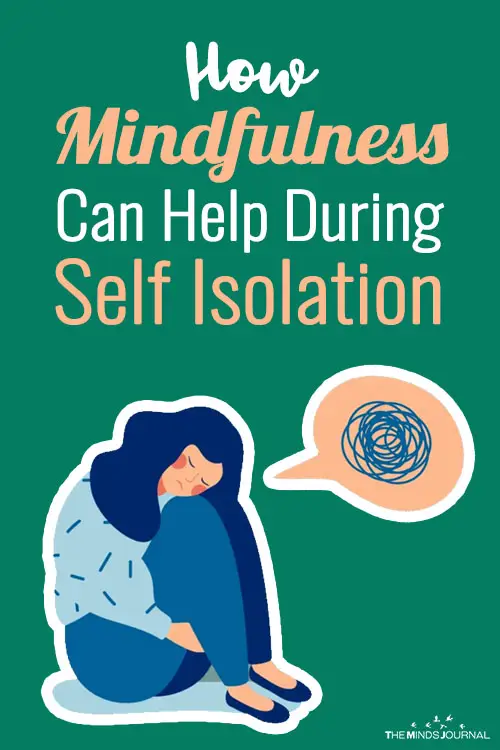
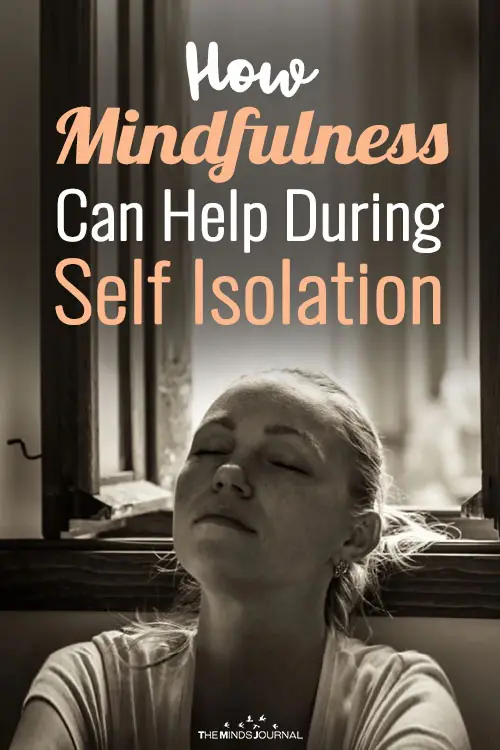
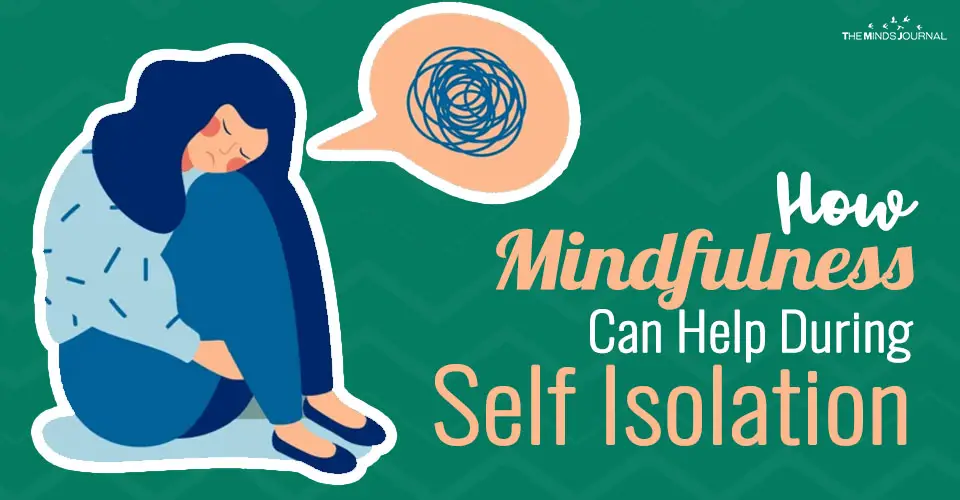
Leave a Reply
You must be logged in to post a comment.